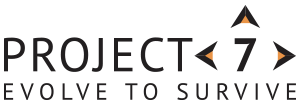London North Western Route [LNW] is the largest of the Network Rail routes within the UK, running services from Euston and Marylebone, through the midlands, Birmingham, Liverpool and Manchester, up to Carlisle.
The Route employs a workforce of over 7000 staff across all the main disciplines of Maintenance and Asset Management, as well as Renewals and Infrastructure projects. With over 4500 miles of track, LNW represents 24% of the entire Network Rail organisation.
Key stakeholders from within the organisation included the LNW Route Executive Team and Route Managing Director, as well as a host of senior managers throughout the enterprise.
The project was part of the overriding Network Rail strategy to introduce a Better Every Day culture through structured Continuous Improvement. An initial figure of £300m in efficiency savings was introduced. LNW’s strategy was to be best in class for its Network Rail operations division.
When we first looked at our efficiency target and our goals regarding lean, we first thought we wanted the course to simply wipe its face; so what are the costs going to be for Year 1 and Year 2, could we realise those costs and bring them out our bottom line – we quickly hit those targets within about 9 months of starting our course! Since then we’ve moved on and actually found savings month on month, and have exceeded all previous targets. It does exactly what it says on the tin.”
– Jamie Cowan – Special Projects Manager at Network Rail
The key motive for this project stemmed from the lack of in-house tools and skills within the company – a significant challenge that was preventing the client from delivering a full Lean programme, necessary to achieve the desired savings and cultural improvements, across a large scale workforce.
For many years, Network Rail had trialled numerous options to attempt the establishment of a Continuous Improvement [CI] culture – with limited success. One of the key root causes for this was the lack of understanding of CI culture at an Executive level, in order to be able to not only sponsor, but to understand the key strategy, in turn gaining a sustained momentum of CI.
The organisation was left with a high variation of projects and improvement ideas that had little to no structure in place for required changes to be successfully integrated. Analysis of Alternatives:
- Initial discussions led to the development of a strategy and basis for a full tender process.
- The LNW Executive selected six tenders for full review and representations.
- Project7’s four-step approach and direct hands-on coaching methods were the main contributing factors for selection and winning the contract award.
In order to overcome the challenges within LNW, Project7 designed and implemented a solution, centered on their four-step Knowledge Transfer approach; which would improve awareness and provide coached training across all 408 of LNW’s key personnel. This initiated a roll out of “Lean” activities across each of the Route’s disciplines and departments.
Project7’s solution did not only provide some the UK’s leading experts, but facilitated a robust selection of early adopters to Lean from within LNW. A full program of learning through doing, in real time, with 100% full time coaching and mentoring support to the chosen delegates, ensuring the most effective knowledge transfer possible.
Implementation was split into 3 primary focus areas:
Part 1
The creation of 35 5-day Lean Learning Academies, scheduled over two years, to support the overall Knowledge Transfer programme, and provide a base-level understanding for the top 408 LNW Managers selected.
Part 2
The selection process via the Project7 four-step approach, ensuring that the delegate in question was well-informed and prepared for the learning and activities going forward.
Part 3
The Lean Learning Academy [LLA] itself with the selection and ongoing support for the delegate to work in real-time, within the business, incorporating a “Lean” workstream to support and develop the learning, as well as demonstrating to others within their teams the behaviours and techniques used to enforce both significant and sustained change.
As a result of these implementations, the initial savings target was met within the first 9 months of engagement. This target has seen month on month growth ever since.
Initial concerns with the proposed solution included incorrect selection of delegates due to understanding not being fully integrated amongst Executives. The Project7 Step 1 process quickly identified this issue and through further robust reporting was able to gain better control of up and coming candidates.
Gaining support from the Finance community was also an initial concern with the project; LNW had formerly been unable to model or understand the impacts of Continuous Improvement and waste removal, in terms of hard savings and cost avoidance. Attendance of Finance personnel on the LLA itself support the understanding and the key role which the Finance department fulfil. Further reporting systems were developed and financial trackers and calculation models were created to verify the savings to date.
Early adoption of both Finance and HR are critical in securing support for change and identifying how initial verified savings encourage further change and support sponsorship.
- To date 260 managers completed the LLA, with over 210 Lean work streams in place.
- Strengthened LNW reputation with leading customers.
- ROI of £10.4 million to date, with a further £37 million identified for the next 18 months.
- Best reliability figures in over seven years, with Virgin Trains performance at its highest to date.

